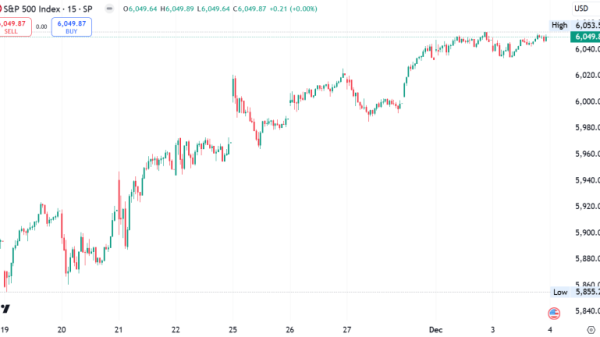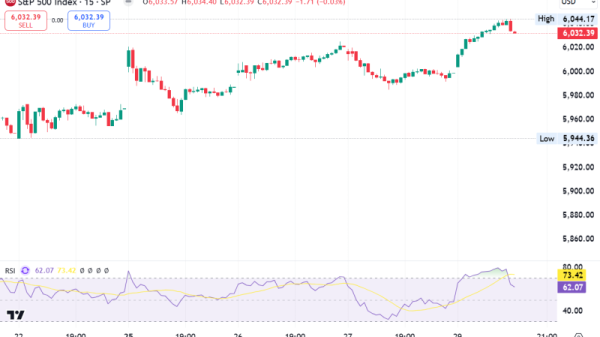Kevin McCarthy learned a painful lesson: There’s a price to pay for helping set fire to an institution and then asking the fire department to come save your office.
The California Republican spent nine months as House speaker trying to placate an intractable group of hard-right Republicans, bowing to their demands in ways that hurt the House as an institution. They were never satisfied and turned on McCarthy, setting in motion Tuesday’s vote to expel him as speaker.
By late Monday, after enough Republicans had made their intentions known, it was clear that McCarthy could not win just from votes on his side of the aisle, as is the House tradition. So he turned to Democrats to ask for help putting out the fire of an internal GOP rebellion that he helped start.
It wasn’t even a close call.
“Nobody trusts Kevin McCarthy. Nobody trusts Kevin McCarthy,” Rep. Pramila Jayapal (D-Wash.), a leading liberal, told reporters after a raucous morning caucus.
With that, the always-smiling Republican got expelled from the speaker’s office nine months to the day he lost the first 14 of 15 ballots in trying to win the gavel. After all the concessions McCarthy had made to his right flank to finally win, Democrats could not believe some Republicans were asking them to save McCarthy’s political life.
Some of their voices filled with anger, they said they no longer saw him as the good-natured young Republican who befriended them a decade before in the House gym and planned bipartisan, group bike rides. They viewed him as morphing — fairly quickly over the past three years — into a craven, unprincipled leader just trying to cling to power for the sake of power alone.
Some Democrats pitied him and all his efforts to appease a group of intransigent right-wing radicals. But they said he had to pay a price for making so many promises and backing away from them.
They recalled how, immediately after the Jan. 6, 2021, insurrection, McCarthy blamed President Donald Trump and called for an independent commission to investigate, only to throw his support behind Trump after he left office and to oppose a deep investigation.
“He has brought chaos to the House, and he’s saying keeping him in that position is how we solve that problem? That’s an argument that just isn’t selling,” said Rep. Adam Smith of Washington state, the top Democrat on the House Armed Services Committee and co-author of a Pentagon policy bill that won the panel’s approval 58-1.
House Minority Leader Hakeem Jeffries (D-N.Y.) cited that legislation as a key example of McCarthy’s deceit. Rather than advance such a bill with broad support, he caved to a few hard-right Republicans and loaded the legislation up with culture-war policy riders that passed on a narrow partisan vote.
Jeffries, who has held a cordial public relationship with McCarthy, left no doubt that his party would unanimously support taking the gavel from him, rating McCarthy as no different from the most extreme elements of the GOP.
“Given their unwillingness to break from MAGA extremism in an authentic and comprehensive manner, House Democratic leadership will vote yes on the pending Republican Motion to Vacate the Chair,” Jeffries wrote to Democratic lawmakers just minutes before votes started, referring to Trump’s “Make America Great Again” slogan.
In a rambling news conference late Tuesday, McCarthy blamed Democrats for not giving him some support, suggesting he had been given such assurances late last year.
“I think today was a political decision,” he told reporters, suggesting they hurt the House. “My fear is the institution fell today.”
In fact, when Rep. Matt Gaetz (R-Fla.), McCarthy’s biggest antagonist inside the House GOP, formally offered the motion Monday, he expected Democrats to give McCarthy a political lifeline.
“That’s the likely outcome,” Gaetz told reporters in a news conference.
Instead, Gaetz got to oversee one hour of debate before the final vote, decamping to the Democratic side of the aisle to work at a table usually reserved for leading liberals who despise him.
Democrats did not speak during the debate, leaving the Republicans to fight among themselves. On the final vote, 208 Democrats and eight Republicans voted against McCarthy, with 210 GOP lawmakers supporting him.
McCarthy’s allies had hoped that senior Democrats who care for the institution, particularly Rep. Steny H. Hoyer of Maryland, who served 20 years in leadership and has traveled abroad with McCarthy, would find a way to give him enough support.
First elected in 2006, McCarthy spent his first 12 years in office well liked on both sides of the aisle. He worked out in the House gym with a bipartisan crowd.
Rep. Patrick T. McHenry (R-N.C.), a close McCarthy confidant who is now serving as acting speaker, noted that McCarthy tried to treat Jeffries better than then-Speaker Nancy Pelosi (D-Calif.) treated him the previous four years. He warned that expelling a speaker midterm will be a major “inflection” point.
McCarthy did call Jeffries on Monday evening, but in his news conference, McCarthy said neither leader offered or requested concessions to win votes.
If Democrats were to save him, it would just have been out of the rapport they had with him or for the sake of avoiding throwing the House into the chaos that now consumes it.
Instead, Democrats said that the McCarthy they knew and liked from his days about a decade ago, when he held a junior GOP leadership post, had become unrecognizable compared with the man who gave in to so many hard-right demands.
“I don’t distinguish that sharply between Kevin McCarthy and Matt Gaetz,” Rep. Jaime B. Raskin (D-Md.) said Monday.
Raskin, a manager in Trump’s second impeachment trial, noted that McCarthy, in the aftermath of the Capitol attack, was the first high-ranking leader to call for an independent commission to investigate.
But within weeks of the assault, McCarthy traveled to visit Trump and made amends, then worked against a commission and the eventual House Jan. 6 committee.
When he won the speaker’s race in early January, McCarthy did so only by agreeing to weaken the motion that Gaetz used this week against him, making it far easier for a tiny faction to force chaos.
“This speaker and Republican conference have done everything they can to bring us to this point of chaos, to have an unstable House of Representatives,” Rep. Mark Takano (R-Calif.) told reporters Tuesday.
In May, McCarthy clinched a debt-and-budget deal with President Biden that set a framework for federal agency funding for the next two years while also allowing the Treasury Department to continue borrowing.
Within weeks he backed away from that deal when he faced pressure from hard-right Republicans, who contended they had won promises from him that set spending much lower.
Faced with two competing promises, McCarthy went with the GOP lawmakers and ordered the House Appropriations Committee to slash more than $100 billion from the budget. And in September, after publicly promising to hold a vote to launch impeachment proceedings against Biden, he declared on his own that an “impeachment inquiry” was underway, even though his own rank-and-file cast doubt about allegations against the president.
“Kevin McCarthy hasn’t done anything that would be speaker-trustworthy,” Takano said.
Of course, Republicans who voted to oust him Tuesday said they had the same problem: trust.
Over and over, they said, McCarthy would make a commitment to them for some legislation or favor, only to learn that he had some other commitment to another set of Republicans that was in direct conflict.
Rep. Nancy Mace (R-S.C.), who holds moderate views on abortion rights, said she thought she had pledges from him to advance bills to expand access to birth control and rape kits, only to see nothing happen because of antiabortion opposition inside the caucus.
“I’ve made deals with Kevin McCarthy, with the speaker, that he has not kept to help women in this country,” she told reporters after the vote.
His actions the past week summed up his time as speaker, leaving so many people feeling burned by McCarthy. After moving hard to the right on government funding bills, he hit the Saturday deadline to force a government shutdown or pass legislation with Democrats.
He had told conservatives for weeks that he wouldn’t pass legislation with Democrats — only to decide to do just that in a last-minute pivot. Conservatives were infuriated.
McCarthy then publicly clashed with Biden over whether he had made a private pledge for legislation to fund military support for Ukraine, leaving all sides of that debate confused about his position.
And on a Sunday show appearance that was shown to the rank-and-file Democrats on Tuesday, the now ex-speaker blamed the near shutdown of the federal government on Democrats.
“We are not saving Kevin McCarthy,” Jayapal said afterward.
Rep. Mark Takano (R-Calif.) was wrongly identified as a Democrat in earlier versions of this story. He is a Republican. This version has been updated.
































